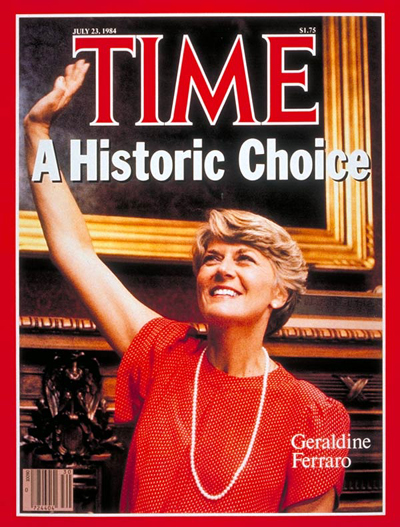Geraldine Ferraro, who died today, was a trailblazer for women in American politics–someone praised for her smarts and toughness (as well as, in this tribute by a female journalist, her fashion sense). The New York-born Ferraro was a lawyer, prosecutor and Congresswoman until Walter Mondale named to his presidential ticket in 1984, fully 24 years before Hillary Clinton would test the proposition that America is ready for a woman to be president. Ferraro has been an inspiration to women in politics ever since; even Sarah Palin, no friend to Democrats, often expresses her gratitude to Ferraro for breaking such a major political glass ceiling.
But the gender crusade that Ferraro came to symbolize is still a long way from fulfilling its potential. All these years later, American politics still remains an overwhelmingly male affair: Only about one in six members of Congress are female, and the 2010 elections actually shrank that percentage slightly. And it’s possible, if unproven, that gender was a roadblock in Hillary Clinton’s bid for the White House, as some of Clinton’s supporters–Ferraro included–believed.
Americans too young to be familiar with Ferraro’s earlier career might remember her best from her bit part in the 2008 presidential campaign: Ferraro stepped down from a fundraising position in Hillary Clinton’s primary campaign after publicly saying that Barack Obama was “very lucky” to be a black man because, she alleged, his gender and race gave him advantages over a woman like Clinton, whom Ferraro said was the victim of blatant sexism–including from her primary rival: “I think Obama was terribly sexist,” Ferraro said after Clinton conceded the nomination.
In a statement today, Obama overlooked those comments and hailed Ferraro as a “trailblazer.” And it’s true that Ferraro’s last public episode shouldn’t obscure the larger and more important legacy of her life and career. Her death, however, is a moment to consider how much work remains for the cause of gender equality that she symbolized.


